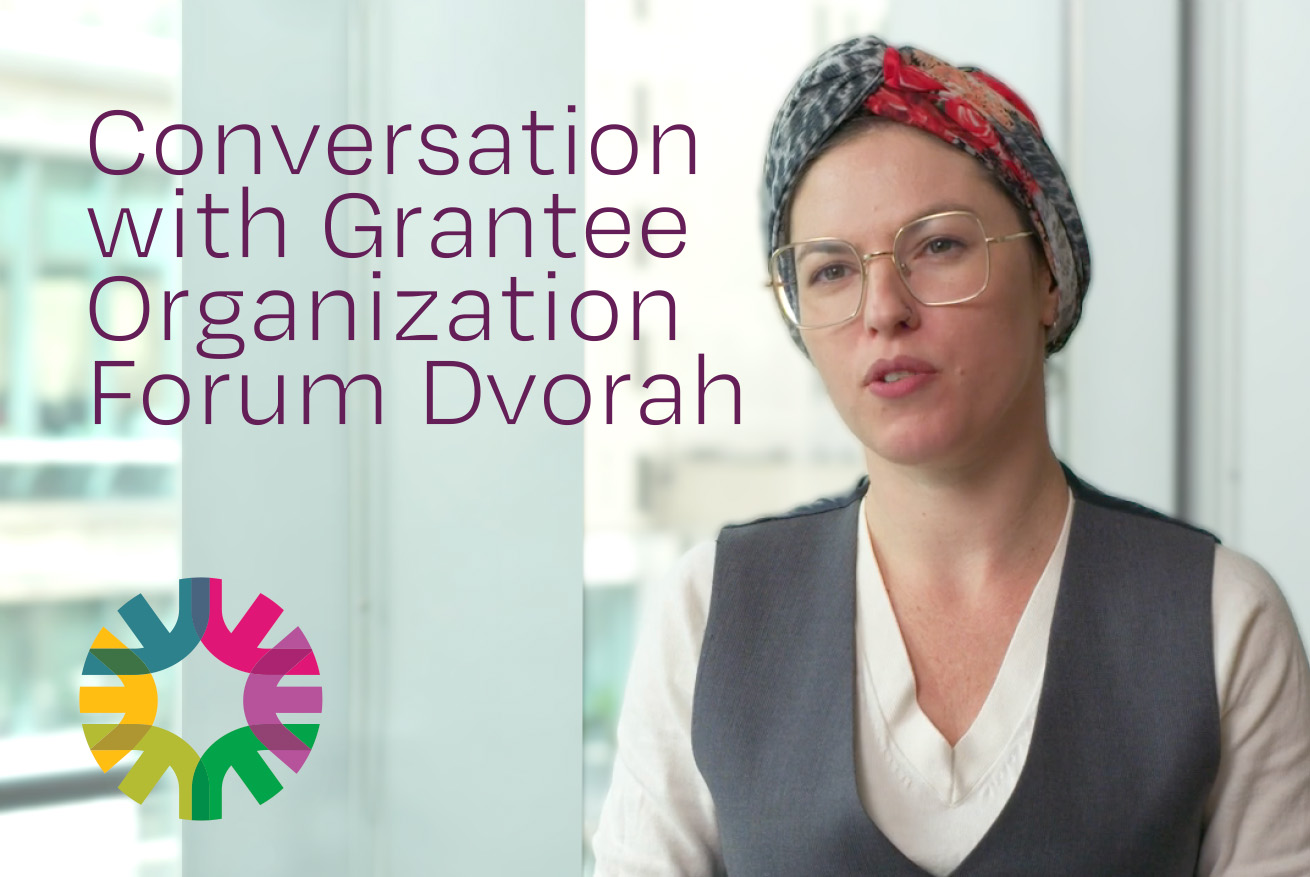At an October 16, 2023 program of the Hadassah Foundation, HF Board Member Negar Treister facilitated a conversation with Shanie Reichman and Alina Shkolnikov of HF grantee organization Forum Dvorah. A 2023 Core grant recipient, Forum Dvorah is a nonpartisan NGO promoting the equal representation of women in key decision-making positions in the fields of national security and foreign policy in Israel. Read bios of the three and of other speakers at the program here. The conversation has been condensed and edited.
Negar: I know all of us have been devastated by the news from Israel over the past week. Can you speak a little about how Forum Dvorah’s work has shifted as a result of the war?
Shanie: Many of our Forum Dvorah members have gone into active reserves already. And we also have about 30 to 40 members of our network who are regularly on international and local news media.
Alina: Forum Dvorah has been doing a lot of work behind the scenes and making sure that women are joined into every decision-making conversation that is happening right now.
Shanie: We also believe that in the day after the war, whenever that may be, there will be many committees established to figure out what’s going to happen to the southern and northern communities in Israel. And we are going to be very pushy about ensuring that women are in that room because all of this affects families in a profound way, and women care about what happens to families in a unique way.
Alina: Add to that, it’s becoming very clear from this war that the conversation of whether women need to be on the front lines in the military, and in our security bodies is no longer a question. We’re seeing many women commanders on the front lines fighting heroically.
Shanie: Everything is high stake right now. The decisions being made now are going to be critical, so it’s important for women to be there. There is a saying about security which is that it’s not just about military security, but about food security, about people having a home. And women are much more inclined to take a more holistic approach to security and what that means for families, for home life. I’m hopeful that the work that we’re doing and that others are doing on the ground will ensure that there are women involved in deciding what the future security of our country looks like, not just at the border but inside people’s homes.
Negar: We’re all reading the news, but I’d love to hear your perspective on the security situation in Israel right now.
Shanie: In terms of how it’s affecting women, we’re seeing families without parents right now. I imagine this war’s impact on women will be worse [than the impact on men] because the impact on women is always worse. What will be interesting to see is if there are a lot of single mothers as a result. Also the way they’re evacuating northern communities as well, it’s obviously going to take a toll on family life.
Alina: We know from other academic research into war-torn countries that a lot of rebuilding is done better when it takes a gender lens. When women are involved in negotiating cease fires, in hostage negotiations, the results are different. For example, when Hillary Clinton was involved in negotiations to build a democratic government in Afghanistan [immediately after the U.S. war there, years before the Taliban’s return to power], she was the only person in the room to say it was important to ensure the education of girls. As a result, girls’ education was incorporated into the agreement. The Afghani government and men involved just didn’t think about it. We will need to rebuild with a gender lens. It will need to be with the understanding that we’re going to have more women with PTSD than ever before, more families that are affected by this. Women need to be at the table because if we’re not there, these needs won’t be addressed.
Negar: What can we do that will better support the work that you are doing?
Alina: Already, the support that the Hadassah Foundation has provided us is allowing us to do the work. At the end of the day, it’s all about having large organizations backing us so we can build infrastructure. Thankfully we started doing that before the war. You can also help amplify women’s voices. If you are in a room with decision makers, make sure that they know that if they want to continue working with you and they want to have your support, there better be women in that room.

